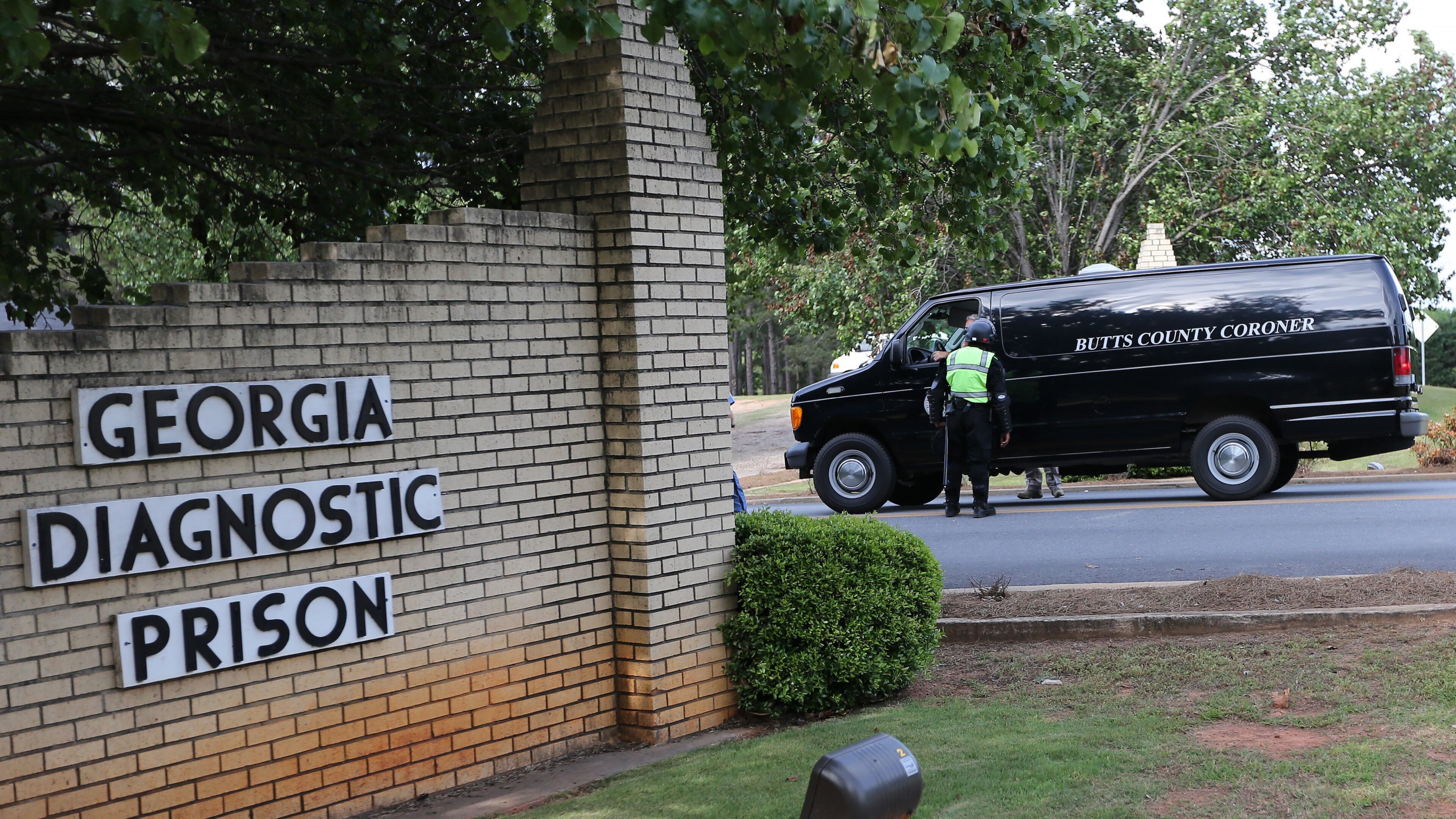Georgia’s first execution of the year still on track

The State Board of Pardons and Paroles denied J.W. “Boy” Ledford’s request for clemency, leaving it up to the courts whether the murderer scheduled to die will be executed Tuesday.
The board made its decision, without explaining its reasons, after spending 2 1/2 hours Monday with Ledford’s relatives and friends and another 2 1/2 hours with the family of the man he murdered 25 years ago, 73-year-old Harry Johnston -- his neighbor and the doctor who delivered him as a baby.
Ledford is scheduled to die by lethal injection at the Georgia Diagnostic and Classification Prison at Jackson at 7 p.m on Tuesday.
Earlier on Monday, Ledford’s mother asked for mercy. His six sisters and his son also spoke to the State Board of Pardons and Paroles on Monday as other members of his legal team tried to stop what is scheduled to be Georgia’s first lethal injection this year.
And then the five-member board heard the emotional recountings of Johnston’s son, daughter and granddaughter of the murder and the years since.
“They related what it was like then and what it’s like to wait 25 years,” said Bert Poston, the district attorney for Murray County where the murder occurred.
He said they talked about how Johnston’s widow, Antoinette, had waited for justice but died in February.
According to court records, the 73-year-old Johnston was stabbed several times with one wound to his neck almost decapitating the physician. Ledford, then 20, confessed to the murder but said it was self-defense, claiming Johnston struck him and threatened him with a knife.
If Ledford is put to death, he will be the first man Georgia has executed this year. Last year, Georgia carried out a record number of lethal injections, nine, and led the nation in executions, surpassing even Texas, which is also scheduled to execute a man on Tuesday.
His legal team continues to press the courts to stop Ledford’s execution, arguing that the 45-year-old man could suffer a horrific death because a medication he had been taking for years for chronic pain may have altered his brain chemistry, and that could mean the pentobarbital may not perform as it should.
According to a professor in the Departments of Anesthesiology and Surgery at Emory University School of Medicine, the gabapentin Ledford has taken may lessen the effects of the lethal injection drug, causing him not to be completely unconscious when the sedative begins shutting down his lungs.
“There is a substantial risk that Mr. Ledford will be aware and in agony as the (lethal injection drug) pentobarbital attacks his respiratory system, depriving his brain, heart and lungs of oxygen as he drowns in his own saliva,” according to the complaint.
The lawyers said that would violate Ledford’s constitutional protection from cruel and unusual punishment.
They asked that the courts declare Georgia's method, lethal injection, unconstitutional in this instance, and said death by firing squad would most likely not put him at risk of a painful death.
The federal courts, so far, have denied his request. Last week, the 11th U.S. Circuit Court of Appeals rejected an Alabama Death Row inmate's request that he be allowed to choose electrocution or firing squad as his method of execution rather than lethal injection, which that state uses.
Georgia law specifically says executions in this state are to be by lethal injection.
In his clemency petition to the Parole Board, Ledford’s lawyers detailed his childhood years when he began using alcohol and drugs, his life with a father who was a sometimes abusive and strict disciplinarian and his intellectual disabilities, which previous courts have said were not significant enough to make him ineligible for the death penalty.
According to the petition, Ledford regrets killing Johnston still.
“Boy Ledford confessed to killing Dr. Johnston the day after he was arrested and has never denied killing him,” according to his clemency petition. “The pain of killing the doctor is something that he lives with daily.”
Ledford’s lawyers say Ledford had consumed a six-pack of 16-ounce beers, smoked about 10 marijuana cigarettes and had taken some pills the day he killed Johnston. Poston, who had joined the district attorney’s office two months before the crime, said neither Johnston’s wife nor the pawn shop dealers reported that Ledford seemed impaired when they spoke to him.
Ledford told police he had asked the doctor for a ride to town. Antoinette Johnston told police that she saw her husband drive off in his truck mid-afternoon that day with someone she could not identify in the passenger side.
Ledford said the doctor accused him of stealing from him and turned the truck around. Once back at the Johnston house, Ledford said, the doctor slapped him and pulled out a knife. Ledford said that was when he pulled out a knife too.
Antoinette Johnston told police that Ledford came to her door that afternoon, identifying himself as the son of a woman who once cleaned the Johnston house. He asked for the doctor but she told him her husband was not home.
She said he came back later to ask her to give Johnston a message. Ledford came back a third time with a knife.
He tied up the woman, pocketed some cash and picked up a shotgun and two handguns he found. Her bindings were loose enough for her to free herself in time to see Ledford drive off in her husband’s truck.
Ledford was pulled over driving Johnston’s truck 30 minutes later, after he had pawned the shotgun and the rifle. He still had the handguns and the money he had taken.

